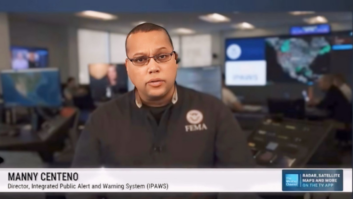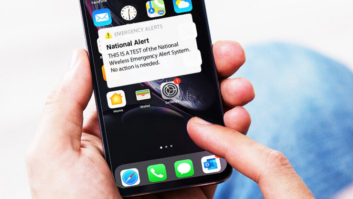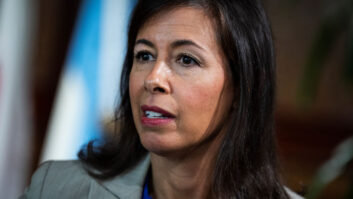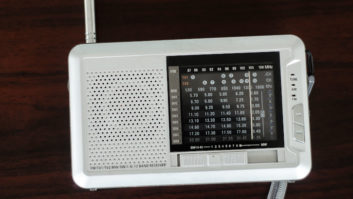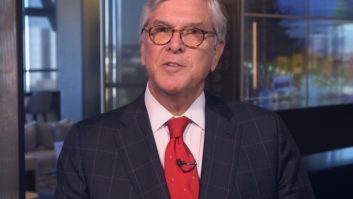The author is membership program director of the National Federation of Community Broadcasters. NFCB commentaries are featured regularly at www.radioworld.com.
I recently had the pleasure of speaking on digital strategy and tools at Native Public Media’s 2019 Native Broadcast Summit. At this annual gathering, organized by one of tribal stations’ great advocates, station managers from across the United States come together to seek ways to build Native American media and amplify indigenous voices far and wide. It is a powerful gathering, one that kicks off a potential summer of learning for noncommercial media makers nationwide.
Summertime is a welcome reset for many of us in the noncommercial media industry. Spring pledge drives have wrapped and local festivities present fantastic outreach opportunities. An underappreciated part of the summer months, however, is the array of chances for stations to up their game through education.
[Read: Community Broadcaster: Dead Air]
It kicks off in June when the organization I work for, the National Federation of Community Broadcasters, hosts the 2019 Community Media Conference in San Diego. With tracks organized around community radio content, revenue, engagement and organizational capacity, the gathering features a who’s who of community media’s station leaders, producers and vanguards. The agenda is posted online.
The summer continues with Greater Public’s massive Public Media Development and Marketing Conference, happening in Dallas in July. PMDMC is widely recognized as the signature event for noncommercial radio and television stations interested in fundraising and other development conversations. Around that same week in July, the Alliance for Community Media hosts its annual national convention in Portland. ACM serves a legion of public, educational and government access television and radio stations; these outlets traverse the community media space, including public-access television, high school radio and many more organizations. While the agendas have not been introduced just yet, both events are certain to be dynamic.
Proceeding later into the season, Public Radio Program Directors offers its 2019 Public Radio Content Conference, one of the best events for both practical and 30,000-foot discussions of programming, audience and the future. Its past keynoters have been some of public media’s best-known names, like “This American Life”’s Ira Glass and Michael Barbaro, host of “The Daily,” the renowned podcast from the New York Times. And speaking of big names, the Online News Association brings journalistic star power to New Orleans in September with its yearly get-together for journalists. ONA’s meetup attracts digital, print, radio and television content producers of every level, and hosts thousands of attendees.
And though the summer will be long gone by then, October sees another Grassroots Radio Conference, too. In brief, 2019 is a busy year for meetings.
I am often asked whether a station should send its staff or volunteers to a conference, and why they should. My answer is an emphatic yes, and here is why.
The big draw for conferences is the array of subjects and speakers. No doubt, you can learn a lot from an experienced manager speaking about successes. They can help you with new ideas you can apply at home. The case studies can invigorate you. I have attended many conference in which I brought back pages of notes for co-workers, filled with URLs, titles and insights applicable to our work. Conferences open up a station’s world anew.
In addition, conferences are a wonderful way for community radio stations to connect with peers doing the specialized work they do. Some of my greatest joys out of conferences were meeting colleagues who solved problems I had wrestled with, but had yet to clear up. Someone else with different skills than I, in many cases, approached the issue in a fresh way and fixed it, and helped me resolve things as well. Those contacts would be people I would later call on often for unrelated matters. At that time, I figured these individuals might know people I did not that could offer guidance on other topics. It turns out, they could. And while conferences may offer superb panels and keynotes, the networks I was able to build for my station were invaluable.
And finally, conferences represent a crucial training opportunity for staff and volunteers. Stations seldom invest in education for their people, but they should. A station that trains its managers and producers will discover happier, more productive, more effective leaders. People who feel invested in are less likely to leave and less likely to burn out. Conferences are thus an infusion into the future of a station.
Community radio stations are, by my estimation, most challenged when it comes to knowledge. Stations may attract very well-intended and passionate people to their local efforts. However, as they grow, stations truly need a diversity of skills to keep evolving. Depending on where a station is located, the talent an organization requires may not be in town, or just is not specialized enough to boost a radio station. That’s not to take away from the fabulous folks present. But, as with a business, a nonprofit requires many sorts of people and professional talents to help. The riddle is how to find the right connections when you are not exactly sure what you need, and where you can find the missing links. A conference provides such benefits, and much more.
[Subscribe to our newsletter and get it delivered right to your inbox.]
